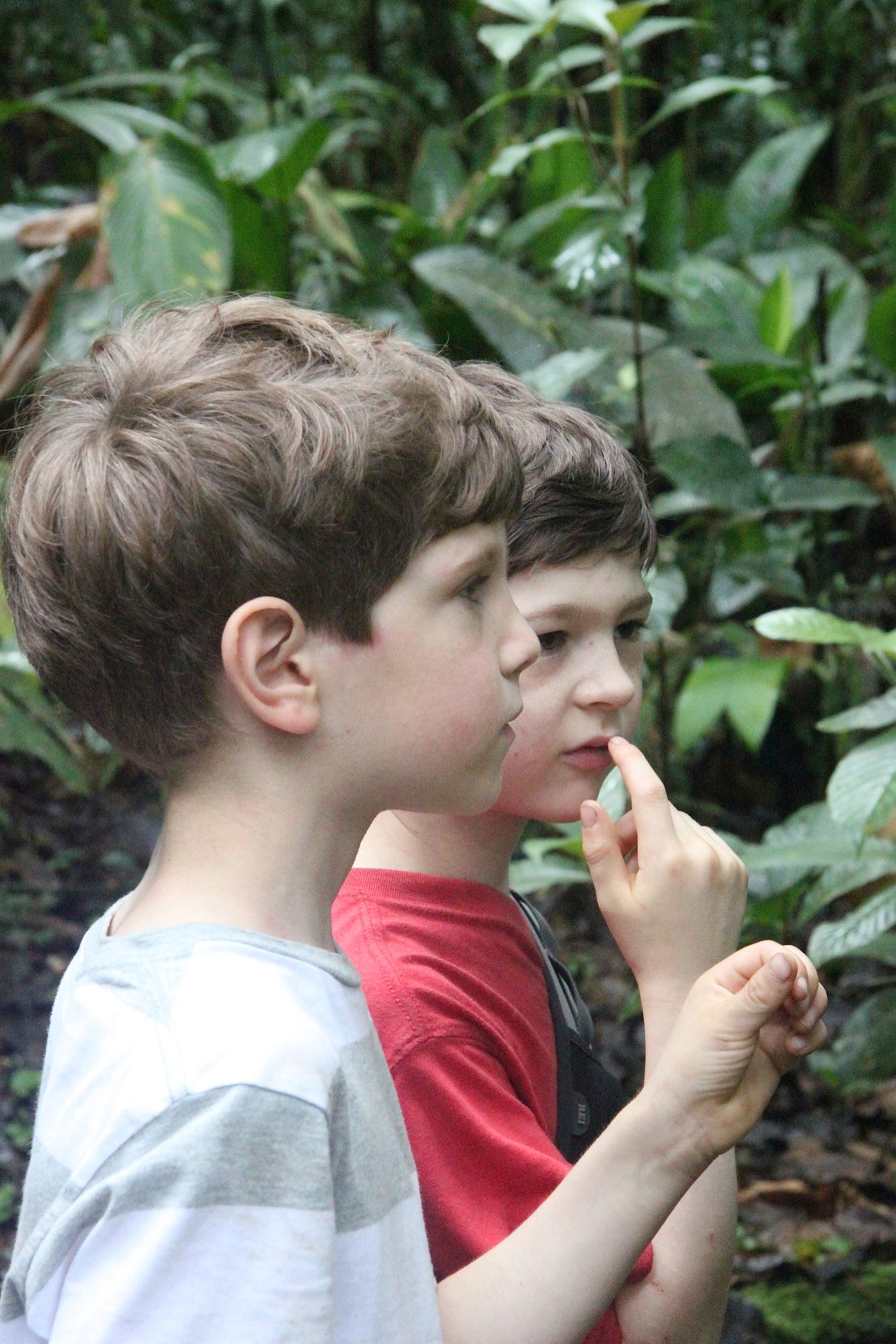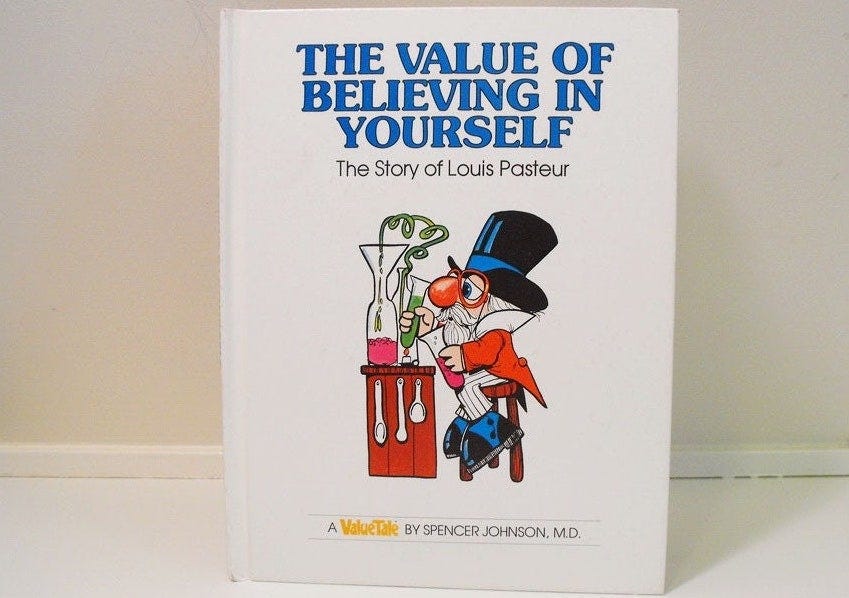In light of ever more frequent reveals about the lack of efficacy and safety of the mRNA vaccines, and, in contrast, the evidence for efficacy and safety of Ivermectin as an early treatment for Covid, this week I am posting an essay that I wrote ten months ago.
What If We’re Wrong was invited by Areo for their free speech extravaganza last Spring. Discussions about free speech often leave me unimpressed, as, wearing my scientist hat, I have always thought that our inability to know what is true is one of the most fundamental issues. Yet in the moment—the here and now, which is inherently peopled by those who lack perspective and humility, who are certain that they are right, and in possession of complete and unwavering truth—this fact is often ignored, or even mocked.
We live in the era of big-S Science. Big-S Science is funded by powerful organizations—both public and private—and used for political ends by different powerful organizations—both public and private. Big-S Science is often conclusion-driven, rather than hypothesis-driven. Big-S Science has an interest in having its conclusions simply accepted, its policies complied with, its inner workings simultaneously ignored and trusted by an unwitting populace. Big-S Science would really rather that the citizenry not be capable of assessing any of its claims.
Luckily for Big-S Science, many Westerners, at any rate, seem to have abdicated responsibility for doing any scientific thinking for ourselves. It is almost a point of honor among many of the erudite class, the coastal elites, the liberal intelligentsia, that they can’t really do math.
Nobody admits proudly to being illiterate, but innumerate? Isn’t that cute. Even Barbie says that math is hard! And really aren’t we all innumerate, kind of? Well no. We’re not. Only a tiny fraction of people on Earth does such advanced math that the rest of us can’t keep up, but basic numeracy should be an expectation of being an adult. So, too, should basic scientific literacy (for lack of a more elegant term) be an expectation of being an adult.
Children are born curious, and by the time they can string a few words together, are asking about the meaning of all manner of things. Not only do they ask, but they observe, and they try (and they try again), and they experiment. It is not the lack of lab coats and glassware that renders most of them non-scientists by the time they reach the end of high school. Rather, it is active, persistent training in not asking unexpected questions, not making careful and repeated observations, and not questioning accepted dogma, which makes most young people into quiescent, meek young adults—who become quiescent and meek middle-aged and old adults—who accept what authorities say.
This, I should not have to spell out, is the antithesis of science. Compliance is anti-scientific. Yet authorities have managed to convince a whole population that compliance with authorities is scientific, and that #FollowTheScience is somehow a scientific final word on the situation, whatever it may be. But the data and analysis being “followed” are so often hidden and, oopsie, also turn out to be changing all the time. We can’t “fact check” the claims made by #FollowTheScience authoritarians, either, because we are being denied access to the actual data in most cases, or the claims are based on such vague arm-waving that we can’t even know what to try to assess and falsify, because what is being claimed anyway?
What, indeed, is the head of the CDC talking about1 when she suggests that she was excited “when the CNN feed came…that [the vaccine] was 95% effective”? Was the CDC getting its scientific understanding of a global pandemic and how best to address it from…CNN? Much as fact checkers aren’t scientists, neither is CNN staffed by scientists. Nor is CNN the arbiter of scientific truth.
Wolensky continues: “So many of us wanted [the vaccine] to be helpful. So many of us wanted to say that this was our ticket out, now we’re done.” An emotional desire—for a magic bullet that allows a way out of a pandemic—in no way resembles scientific evidence. This has been the nature of our authorities for the last two years. Wolensky further claims that “nobody said…what if [the vaccine is] not as potent against the next variant,” but basic evolutionary thinking predicts that as a pathogen evolves, the vaccine that targets the original form will become less effective. If the head of the CDC reports that “nobody” voiced such a basic biological principle, whose hands are we in? People making claims like these should never have authority over anything that matters, ever again.
Neither a news organization, nor appeals to emotion, are arbiters of scientific truth. Rather, the scientific method, iterated over time, which results in increasing predictive power, is the arbiter of scientific truth. Science can’t be done by fiat, or consensus, or mandates, or violence. You can shut people down, to be sure, but that doesn’t make you right.
Many orthodoxies sprang up in the Age of Covid: SARS-CoV2 has a purely zoonotic origin; the mRNA vaccines are safe and effective (a truism somehow gleaned after mere months of development and trials); and early treatment by any but the most expensive and newly generated drugs is surely a scam. Drugs with long safety records and promising clinical and research results in the early treatment of Covid—most notably Hydroxychloroquine and Ivermectin—were dismissed out of hand, sometimes taking down the reputations and careers of those staunch enough to insist: no, really, we could be saving lives, and opening the economy, but instead we’re playing footsie with pharma and pretending that the best thing to do if you get Covid is to go home and wait. Wait until you get better, or are so sick that you need to be admitted to the hospital, at which point it may be too late to help you.
The death and devastation directly attributable to these orthodoxies is unquantifiable. The many millions of people who adopted the orthodoxies, however, who piled on, taking comfort in being on the side of “science”—but who were actually merely on the side of the mob—at the very least those people need to answer to themselves, look themselves in the mirror, and ask: what have I done?
Some of us kept talking about what we could know, what we couldn’t know, and what we thought based on the evidence that we could see. For this we were pilloried, and mocked, and worse. We were engaging in scientific approaches to a question that proved not just remarkably complex, but in which substantial aspects of the story were being actively kept from us. Watch this2, and read this3, and tell me that big-S Science and perverse incentives didn’t create false scientific consensus, and drive demonstrably bad and dangerous policy, for the last two years. Substantial aspects of a story we need to know have been actively kept from all of us.
Would that we didn’t have a corrupt and captured system of higher education in which no, not just the humanities and social sciences are increasingly confused by the post-modernist inspired incursions by Diversity, Equity and Inclusion (DEI), but so too are the sciences. Worse than that, though, as I have spoken and written about elsewhere (e.g. at Oxford in 2019; in The Spectator World in 2021), science was already failing before the DEI revolution came along. It is an unfortunate fact that most people in “science” are actually largely trained to go along, to get on a conveyor belt and go through the motions and collect the goodies of academia—the degrees, the grants, the postdocs, the grants, the tenure track job, the grants, the accolades, the grants. Etcetera.
If you are inclined to “go along,” you don’t belong in science. If you are inclined to bark at people to #FollowTheScience, you don’t belong in science. If you are inclined to say things like “attacks on me quite frankly are attacks on science,” as Fauci did in June of 2021, you have revealed yourself as a petty tyrant—or, in his case, not petty at all, more’s the pity for all of us—and as the very antithesis of science.
Without further ado, then, here is this piece from May 2021, unaltered, although I would write it somewhat differently today. This is in part because I no longer see any evidence for most masks being an effective tool against this virus. More saliently, though, I might be even more direct now, because while at the time I was trying to speak just at the edge of what people could hear—to be at the edge of the Overton window, still viewable from those inside—as it turns out, I’m not sure that anyone who needed to hear it did, and we continue to need the message now more than ever.
What If We’re Wrong
What if the Earth isn’t the centre of everything? What if the ancestors of humans once looked like monkeys, or were single-celled organisms? What if the continents move?
These questions were once beyond the pale. They were not to be discussed in polite society, were outside the frame of the Overton window. None of that made them untrue, however, or unimportant.
Every idea that we now understand to be true was first realized by a human mind, unknown to anyone else. Before that moment, nobody in our species had had the thought. Our lack of knowledge limited us. And yet before any human had the thought, it was nevertheless true. Some person first conceived the idea, thought on it for a while, honed it, shaped it, and then shared it. Maybe the first person they shared it with thought it was a terrific idea. More likely, they thought the originator was wrong, maybe engaged in crazy talk. For a while, the idea may have even been considered dangerous, worthy of contempt and scorn. And for a long time thereafter, that idea—one that, in retrospect, we understand to be fundamental—was at the very least considered outside the range of acceptable and accepted thought. It was heterodox.
Galileo might have had a few things to say about that.
Orthodoxy and heterodoxy—apparent opposites pulling against one another from across a gap that can seem impassable—in fact rely on and thrive with one another. Orthodoxy is effective at times of stasis, when what is to come looks very much like what came before, and when what we believe to be true is in fact true. Too much orthodoxy, though, and we become stale and stagnant. Heterodoxy injects new ideas into a system, and is necessary any time the world is changing, and the future has little chance of looking like the past. Too much heterodoxy, however, and we become frenzied and chaotic.
Regardless of what is most needed in the world at any given moment—regardless of whether the conditions call for more orthodoxy or more heterodoxy—there always needs to be an avenue for discussion. Both orthodox and heterodox ideas always need to be publicly discussable. Otherwise, whoever holds the most power when censorship begins—at the point at which people begin hiding their thoughts and conversations—will gain ever more power. The powerful will shape the governing orthodoxy—and it will always be an orthodoxy, even if its central ideas were heterodox just yesterday—and will crack down ever harder on those who dissent.
The argument, of course, is not that all instances of dissent are necessary, or valuable, or reasonable. Angry, deceitful and dangerous words, actions and regimes have emerged from dissent countless times throughout history. But dissent in and of itself is utterly necessary. Instances of ill-considered dissent are too often trotted out as proof that dissent itself is dangerous, but this is poor logic, and often obscures other motives.
It is naïve to imagine that—living as we do within the constraints of the moment—we can see into the future with such clarity that those who would decide what speech is and is not acceptable are in a good position to know what is actually true. Many of Galileo’s interlocutors did not know what was true, yet they certainly believed that they did. (Some of his interlocutors—like many of those who would tamp down dissent—were presumably not driven by belief, but merely by a wish to shore up their power.) Too many would make themselves judge, jury and executioner of certain concepts and conversations, while claiming to be the sole proprietors of truth. They are engaging in a grand narcissism: they imagine themselves as, for the first time in history, able to see everything. It is akin to declaring themselves God.
What if SARS-CoV2 leaked from a lab? What if there are long-term effects of mRNA vaccines? What if Ivermectin is a safe and effective prophylaxis against, and treatment for, COVID-19?
Unlike the questions that began this essay, the answers to these questions are not yet resolved. But the very posing of them has been considered—again—beyond the pale, unacceptable in polite company, outside the Overton window. Those of us who asked them, throughout 2020 and well into 2021, have been called conspiracy theorists, and worse. Our intentions have been questioned. We have been told to keep quiet. Some have self-censored, and others have been brought to heel by Big Tech. The powers that be at Google, for instance, had an official policy as of May 2021 which includes this line: “YouTube doesn’t allow content that spreads medical misinformation that contradicts local health authorities’ or the World Health Organization’s (WHO) medical information about COVID-19.”
This policy fundamentally misunderstands science. Local health authorities and the WHO can be wrong, as can we all. Being wrong is no crime (although prevaricating to further your own agenda when lives are on the line is tantamount to one). Shutting down the voices of those who question your conclusions—while not criminal—is antithetical to science.
On Leap Day of 2020, in a tweet that remained up for months but has now been deleted, the US Surgeon General was dismissive of those who thought that masks were a useful tool in preventing the spread of COVID-19, chiding: “Seriously people—STOP BUYING MASKS! They are NOT effective in preventing general public from catching #Coronavirus.” The US Surgeon General has since reversed course and we know that its line, as of Leap Day 2020, was based on politics rather than science. Our understanding of the subtleties of airborne vs. aerosol transmission may even cause a re-evaluation of mask policy in the near term—re-evaluating what we understand is to be expected, as new data come in.
What’s a thinking person to do?
Additionally, there has been clear evidence since Spring 2020 that outdoor transmission of Covid is incredibly rare, yet public policy has barely begun to catch up to this reality in Spring 2021. Meanwhile, those of us who have been masking indoors in public spaces longer than almost anyone else, but have not worn masks outdoors, have been glowered at, and sometimes yelled at, for being irresponsible. We are accused of not following the science, when in fact we are doing exactly what the actual science suggests.
When scientific thinking and a careful analysis of the scientific literature leads to a different conclusion than the declarations of the authorities, what path does #followthescience suggest? Science does not operate by authority, but #followthescience is being used as a bludgeon to silence people into compliance. Freedom of expression is required if science is to function. Those who are engaging in silencing are doing neither science, nor humanity, any favours.
YouTube’s official “COVID-19 medical misinformation policy” further prohibits any claims that Ivermectin is an effective treatment for COVID-19. This despite abundant evidence that Ivermectin is an effective treatment for COVID-19, including from countries where it was already in widespread prophylactic use against other pathogens.
If the efficacy of Ivermectin in treating COVID-19, suggested by many peer-reviewed scientific papers, is borne out, YouTube will be revealed to have been playing a very dangerous game indeed. How much health—individual and economic—will be sacrificed globally on this altar? It’s censorship in science’s clothing. Look closely, and you will find that this has little to do with science. A censor wearing a lab coat is still a censor, and censorship is fundamentally incompatible with science.
Furthermore, even if Ivermectin proves to be little help against COVID-19, the game being played by those who stand opposed to free expression is still dangerous. Policies like that of YouTube, which quash discussion and silence debate, pretend to be pro-science, but they are the opposite. This is a new orthodoxy stamping out heterodoxy, yet again.
We need freedom of expression because what we currently believe is true, just or moral may change. We might be wrong. In light of history, to imagine elsewise is the height of hubris.
We used to know this at a societal level. In fact, we used to teach this to our children.
I am reminded of a book that I had growing up, which I read to my own children when they were small. It was from a series called “Value Tales,” which told the stories of famous people so as to illustrate the particular values they personified. I had The Value of Determination, which was about Helen Keller, and The Value of Adventure, about Sacagawea, but the one that is pertinent to the present discussion is The Value of Believing in Yourself, about Louis Pasteur.
In this children’s book, first published in 1975, we are told that Louis Pasteur, in the days before he was renowned, would walk in the park, pondering the nature of the “invisible enemy … the Rabies germs,” in order to find a way to kill them.
But Pasteur’s idea was not compelling to his contemporaries. We are shown children pointing fingers at him and mocking him, and adults yelling at him that what he attempted was impossible. Pasteur soldiered on, though, and we are all the beneficiaries of that.
The bulk of the book takes us through Pasteur’s remarkable and humanity-changing creation of a rabies vaccine. From the vantage point of more than 130 years on, we know that he was successful. At the end of the book, we are returned to those children who mocked Pasteur when he was the only person who believed in what he was attempting to do. With a lack of self-awareness that is characteristic of children, we find them adoring Pasteur for his success. Pasteur cautions them that what kept him going was his belief in himself—even on those days and with those ideas that didn’t succeed. The lack of self-awareness that will be evidenced by adults today, as positions they once scorned or ignored become visible and viable, will no doubt be comparable.
For every Pasteur, there must be thousands of people who have had an idea that didn’t pan out, as well as countless others whose ideas were good, but never got traction. Science depends on the tenacity of the person with the new idea, even when others take pleasure in mocking it. And if science depends on individuals with tenacity, then society depends on all conversations being possible. The adults who mocked Pasteur before he was successful in creating a rabies vaccine were simultaneously small-minded and arrogant. On the basis that he lacked the appropriate credentials, many medical doctors of the time scorned Pasteur and his work. Pasteur’s contemporaries imagined that the current consensus was all there would ever be to know.
What if we’re not right, though, just as they were not? The scientific process, and having an ever more accurate and refined understanding of our world, both depend on the ability to present explanations for observed phenomena that turn out to be wrong. In the modern era—when the crowd is not just madding but has the capacity to be anonymous and thus avoid any repercussions—many adults are happy to play the schoolyard bully, taunting those whose ideas run even slightly counter to the accepted orthodoxy.
Science functions best when all hypotheses are on the table. Some will be easily dismissed. Others will prove recalcitrant to falsification, even if we eventually come to understand that they are not true. But what science needs, above all else, is the freedom to discuss the possibilities. Without that, there will be no new discoveries. What are today’s equivalents of the heliocentric model of the solar system, evolution by natural selection and plate tectonics? Nobody can be certain. And those who claim certainty on such matters should never have control of who gets to speak, or of what they say when they do.
The source of the video in the linked tweet is from Alex Thompson, in this tweet, who in turn hat-tips Adam Cancryn as the source. Both Thompson and Cancryn are reporters with Politico.
“A Letter to Andrew Hill” By Oracle Films: An 18-minute film about the history of research published on Ivermectin’s efficacy against Covid. The film focuses on the dramatization of a letter written by Dr. Tess Lawrie, to Dr. Andrew Hill, exposing his corruption, which involved actively downplaying the role that he knew that Ivermectin could play in saving people’s lives, and health, and stopping the pandemic.






Meanwhile we hear from Edward Dowd, as interviewed by Dr. Naomi Wolf on how right we all were with respect to the Pfizer mega fraud and the money involved. Dr. Naomi Wolf writes on her platform called The Daily Clout (I almost wrote The Daily Clot!) an excellent essay from on bravery. We need it now and from everyone. She calls out affluent men who are former colleagues or friends who text her bravos for her bravery and excuses for their cowardice. Heather and Bret have been relentlessly fearless of course. Maybe they can engage in a mutual interview with Dr. Wolf:
https://twitter.com/DailyClout/status/1499414546246688772?s=20&t=scCSgI-xUxPfOC-hce9ttg
This is one of the more cogent pieces I have read in some time. It's like Herbie Hancock exclaiming 'we were on. the music was tight' Your writing clears through the refuse so expediently. I have just signed to become a paying subscriber with you here. I wrote a short piece here that takes a slightly spiritual but ultimately grounded view of the need for our own self-governance. https://www.lisafitzhugh.me/writing/2022/2/22/our-adventure-on-the-high-seas
Thank you Heather.